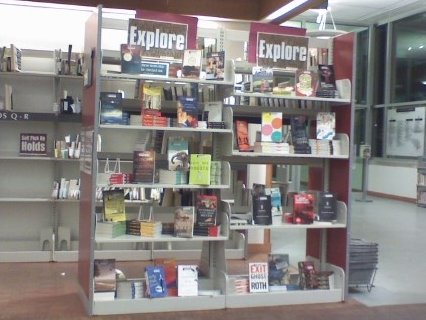
I trusted the counselor when she told me I should take Honors English in high school. I didn’t really understand what it meant, but I followed along. The teacher was also the adviser for the yearbook and I was the only student in the class who was not on the yearbook staff. I was definitely an outcast. I was new to the school, one of those old, Maryland brick buildings named for a dead president. Our assignment was to write a paper on an American author. I immediately rebelled by requesting Victor Hugo instead. We were to read two books and find three other sources. Our only direction from the teacher was that it was not to be a biography or book report.
She accepted my author choice, but was not happy about it. I read Les Misérables and Notre-Dame de Paris. I questioned her over and over about the nature of the paper. It made no sense to me. I gathered my sources, filled out my index cards and pulled together a rough draft. She slashed through it with her red-ink revisions, and I started again. Another draft was slaughtered, but I kept going. I don’t remember her name, but I will never forget her perfume. She overwhelmed me daily with the smell of scented toilet paper.
In the end, I wrote her paper. It was hers. I used every line she wrote. None of it was mine. She gave me a C. It has been more than twenty years and I have not forgotten. I still don’t know why it affected me so deeply, but I do think I understand what she wanted, and why she did what she did. She taught the way she was taught. She did what countless professors did before her. I survived the class and eventually made it to college, where I have no memory of any work being challenged in that way.
I have always been frustrated with words and language. I find it hard to communicate meaning to others, without using standard form and predictable content. I’ve struggled with my limited vocabulary and redundant language. I have even wondered if the problem was in having English as my native language. After writing countless pages of commercial, instructional and academic text and hundreds of thousands of words of online content, I am finally discovering a new way to write, and I feel completely liberated.
It isn’t natural for me, and I am challenging myself with exercises for each story. That is what is so exciting to me. My head is full of stories! Each story could be written a million different ways, and I am in love with discovering how to play with the words. I no longer feel constrained by convention. I can break the rules, as I’m not delivering a message or instruction. I have no audience. I am alone with the story and I can craft it delicately, or leave it rough and untouched.
I crave the word play now, and sometimes will spend all day thinking of the variations on a single sentence. My biggest challenge is still with my patience. I will spend days on the first few paragraphs of a story, working and reworking. Then I push forth the ending, with very few edits, because I have such a strong urge to release my work. This is my habit, and one I will learn to control. In the mean time, the fun is in the thoughts I have between the writing, the work I do away from the machine. At thirty-seven, I am learning to write.








